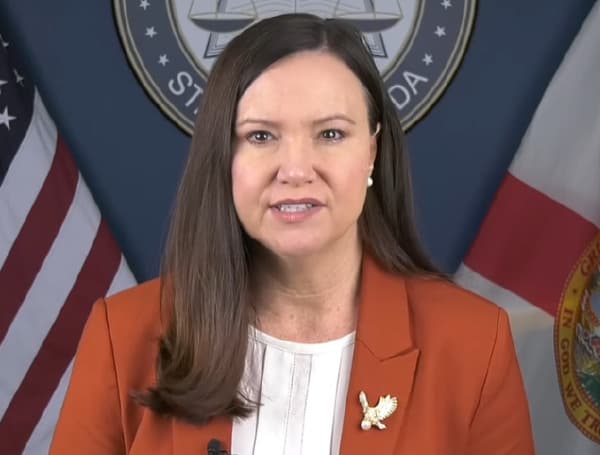Florida Attorney General Ashley Moody (File) On the fifth annual National Slam the Scam Day, Attorney General Ashley Moody is cautioning Floridian
On the fifth annual National Slam the Scam Day, Attorney General Ashley Moody is cautioning Floridians about government imposter scams.
According to the Federal Trade Commission, in 2023, imposter scams cost consumers $2.7 billion. Many involve con artists posing as government organizations in order to obtain financial and personal data.
Attorney General Moody is providing advice to Floridians on how to stay safe from government impersonation schemes.
Read: Jamaican Man And Woman Charged In Florida For ‘Lottery’ Scam Targeting Elderly
“On the fifth annual Slam the Scam Day, I am warning Floridians about government imposter scams. Fraudsters may pose as Social Security officials or other government representatives to trick targets into handing over money or personal information. Know that government agencies will not call, email or text you and ask for money—only a scammer will do that,” said Moody.
In these schemes, scammers pose as government officials and contact potential victims claiming that information or money is required to complete an action.
For example, a fraudster may pose as a Social Security Administration official and tell a target that benefits will end unless payment is made.
Imposters also pose as officials from the Internal Revenue Service, FTC and local law enforcement agencies. Scammers may then demand payment or sensitive personal information with the threat of fines or legal consequences.
Read: Pinellas County Sheriff Warns Of ‘Warrant Scam’ Targeting Residents
To avoid these imposter schemes:
- Don’t trust caller ID—while a call may show the government agency’s real phone number or name, scammers can spoof this information;
- Don’t wire money or use gift cards, cryptocurrency or a payment app to pay someone you don’t know who claims to be from the government;
- If in doubt that a call is from a government agency, hang up and call the office directly; and
- Don’t click on links in unexpected emails, texts or social media messages that claim to be from a government agency.
Help support the Tampa Free Press by making any small donation by clicking here.
Android Users, Click To Download The Tampa Free Press App And Never Miss A Story. Follow Us On Facebook and Twitter. Sign up for our free newsletter.


